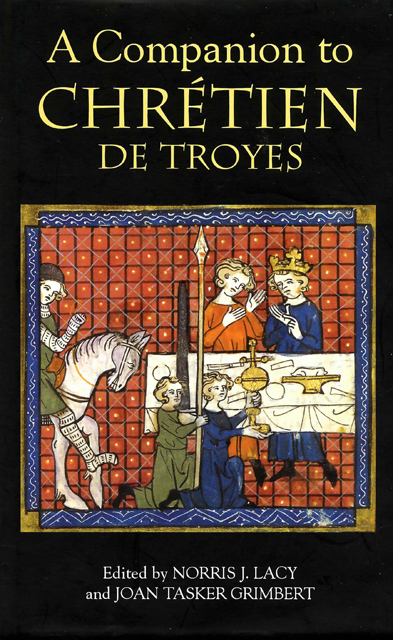8 - Philomena: Brutal Transitions and Courtly Transformations in Chrétien’s Old French Translation
Published online by Cambridge University Press: 23 March 2023
Summary
In the Prologue to Cligés, the narrator introduces himself as author of a series of works ‘an romans’ [‘in the French vernacular’]: the ‘commandments of Ovid’; ‘the art of love’; the tale of the shoulder bite; the story of King Marc and Iseult la Blonde; and the ‘muance’ or metamorphosis of the hoopoe, the swallow and the nightingale. Like the blurb for a modern book, these opening lines announce the author's credentials and his literary preoccupations. Chrétien portrays his engagement in a process of textual transmission, known in the Middle Ages as translatio studii, which involved the ‘translation’ or carrying over of ancient studies from Greece to Rome and into the European vernacular. As he proposes to tell a new story about a Greek youth of Arthurian lineage, Chrétien refashions translatio in a distinctive mode. He claims to have translated or adapted a broad range of works about love, from Ovid's witty amorous verse (most likely the Ars amatoria and the Remedia amoris) and tragic Celtic lore (the Tristan legend) to the shocking story of Philomena's transformation into a nightingale (from Ovid's Metamorphoses). Before he embarks on an original romance about a heroine trapped in an unhappy marriage who will cleverly promote her own amorous desire, Chrétien proclaims his literary expertise in affairs of the heart.
The last work mentioned – and the text described at greatest length – is by far the most brutal account of desire. In Ovid's tale, Philomela (as she is called in Latin) is raped by her brother-in-law, Tereus, who cuts out her tongue so that she cannot speak of his crime. After the mute victim portrays the story of her misfortune in a woven tapestry conveyed to her sister, Procne, the two women kill Procne's son, Itys, and feed him to his unsuspecting father. As Tereus charges to kill the sisters, all three characters are changed into birds. Chrétien's mention of the final transformation or ‘muance’ of hoopoe, swallow and nightingale evokes a dreadful tale, reminding readers of the deadly impulses that subtend marital and family relations.
Philomela's story is also remarkable because it is the only one of Chrétien's non-Arthurian narrative works to have survived, at least in the eyes of many scholars. (Another work not mentioned in Cligés, the Guillaume d’Angleterre, is far less commonly attributed to Chrétien de Troyes.)
- Type
- Chapter
- Information
- A Companion to Chrétien de Troyes , pp. 87 - 102Publisher: Boydell & BrewerPrint publication year: 2005
- 3
- Cited by



